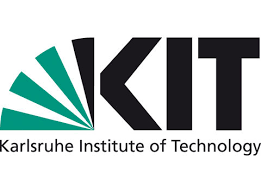Karlsruhe Institute of Technology: Geothermal energy: Heat turnaround to participate
Almost half of Germany’s CO2 emissions are generated in the so-called heating sector – when heating as well as generating hot water and industrial process heat. The heat stored in the earth’s crust can make a significant contribution to a climate-friendly CO2 balance in the heating sector. But like the use of other renewable energies, geothermal power plants are often controversial – not least because citizens and municipalities find their participation in decision-making processes inadequate. This is where Professor Eva Schill and Dr. Christine Rösch headed the GECKO project (“Use of geothermal energy for a climate-neutral heat supply on the North Campus of KIT – inter- and transdisciplinary co-design of an implementation concept”): “How can a real,
Bring those affected and experts together at an early stage
Last year, the GECKO stakeholders organized two “criteria workshops” – one with KIT employees, one with interested citizens, and with stakeholders and municipal elected officials from the region. From the transparency of the planning process and the participation of citizens and municipalities, legal and insurance issues to the economic efficiency and risk management of the future plants, an authentically differentiated opinion emerged.
Rösch draws a positive interim conclusion: “The participants in the first workshops felt valued and found this type of active participation very appropriate. GECKO seems to represent a promising way of how those affected and experts can meet at an early stage in order to master the important task of joint concept development for infrastructure planning. “
“Not only KIT, but also the surrounding communities are faced with the question of how the energy and, above all, the heating transition can be managed,” says Schill, head of the GeoEnergie group at the KIT Institute for Nuclear Waste Management. “This became clear in the course of the project, in addition to the desire for a sustainable and risk-minimized design of the facility at KIT. In this context, the efforts of the KIT to also benefit the surrounding communities from the technological development and geothermal energy in general should be understood. “
From the exchange of views to the usage scenario
The scenarios for the geothermal cultivation of the subsoil on the North Campus of the KIT, resulting from the interplay between science and the public, express the wishes and ideas of the citizens. The way to get there was that geoscientists from the Institute for Nuclear Waste Management first translated the criteria mentioned in the workshops in 2020 into technical parameters or boundary conditions. These in turn formed the framework for three different usage scenarios that were checked for feasibility in modeling. The methodologically tiered development was flanked and deepened by case studies of previous geothermal projects and interviews with experts.
There are still free places for the online scenario workshop on Friday, October 15, 2021, 3:00 p.m. to 6:00 p.m., in which the scenarios are presented for discussion and evaluation. Interested parties can register on the project homepage at https://www.gecko-geothermie.de/aktuelles/projekttermine-anmeldung .
The GECKO project in profile
The aim of the model project GECKO (“Use of geothermal energy for a climate-neutral heat supply at KIT Campus North – interdisciplinary and transdisciplinary co-design of an implementation concept”), which was started in 2019, is to test how planning is based on the example of deep geothermal energy at KIT Campus North of infrastructures for the generation and use of renewable energy can become more transparent and participatory. In three sub-projects, the project partners KIT and Öko-Institut e. V. thereby geological, ecological, technical, economic and social aspects.
The cornerstones of the project are transparency and public participation: science and those affected jointly create knowledge for the design of a geothermal energy use concept – and thus for the specific design of future systems. This transdisciplinary approach follows the approaches of co-production and co-design. The Ministry for the Environment, Climate Protection and the Energy Sector of the State of Baden-Württemberg is funding the project in the BWPLUS funding program.

